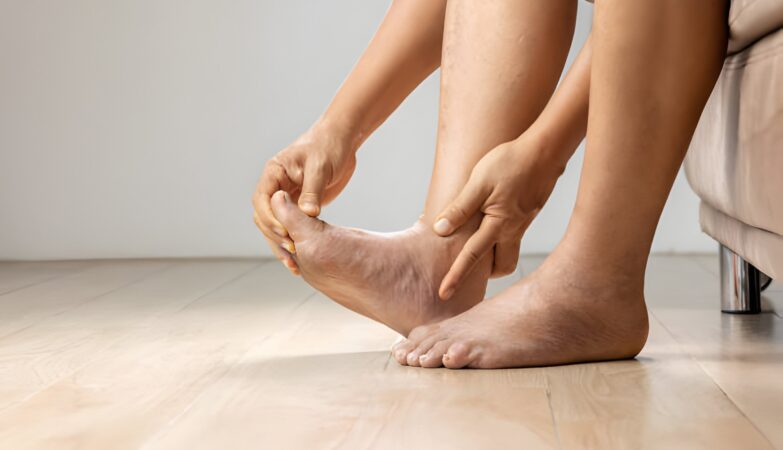The lifespan of horses is a topic of interest for many equine enthusiasts. If you’re wondering how long horses live and what factors can influence their lifespan, you’re in the right place. In this article, we will explore the average lifespan of horses, the factors that affect their longevity, and essential care tips for promoting a horse’s well-being and increasing its lifespan.
Key Takeaways:
- The average lifespan of a domestic horse is around 25 to 30 years.
- Horse lifespan can be influenced by factors such as diet, exercise, genetics, and overall care.
- Smaller horses like ponies tend to live longer than average-sized horses.
- Breed does not determine lifespan, but proper nutrition, veterinary care, regular exercise, and socialization with other horses are crucial for promoting a horse’s longevity.
- Understanding the factors that affect horse lifespan is important for providing optimal care and ensuring that horses live long and healthy lives.
Factors Affecting Horse Lifespan
The lifespan of a horse can be influenced by various factors, including breed, genetics, nutrition, exercise, and healthcare. These factors play a crucial role in determining the horse’s longevity and overall well-being.
Breed: Different horse breeds may have slightly different lifespans. Generally, smaller breeds like ponies tend to live longer than larger breeds.
Genetics: Genetic factors also contribute to a horse’s lifespan. Purebred horses often have longer lifespans compared to mixed breed horses.
Nutrition: Proper nutrition is vital for maintaining a horse’s health and increasing its lifespan. A horse’s diet should consist mainly of hay or grass, with a balanced intake of essential nutrients. Avoiding overfeeding and maintaining a healthy weight are crucial.
Exercise: Regular exercise is necessary to keep a horse physically fit and mentally stimulated. It helps maintain healthy body weight, strengthens muscles, and promotes overall well-being.
Healthcare: Regular veterinary care is essential for a horse’s longevity. Routine check-ups, vaccinations, dental care, and preventive treatments for parasites are crucial in preventing illnesses and ensuring the horse’s health and longevity.
By understanding and addressing these factors, horse owners can provide optimal care, increase their horse’s lifespan, and promote overall well-being.
Comparison of Average Lifespans across Different Horse Breeds
| Breed | Average Lifespan |
|---|---|
| Thoroughbred | 25-30 years |
| Standardbred | 25-30 years |
| Arabian | 25-30 years |
| Quarter Horse | 30-35 years |
| Shetland Pony | 30-40 years |
| Welsh Pony | 30-40 years |
Note: These lifespans are approximate and can vary depending on individual factors such as genetics, care, and overall health.
Care Tips for Increasing Horse Lifespan
Providing good nutrition, attention to health, socialization with other horses, regular exercise, and proper hoof care are important factors in increasing a horse’s lifespan. Horses should be fed small meals throughout the day, mainly consisting of forage such as pasture grasses and long-stem hay. It is important to avoid overfeeding and to maintain a healthy weight for the horse. Regular veterinary care, including vaccinations, deworming, dental care, and hoof care, is essential for preventing diseases and maintaining overall health. Regular exercise and socialization with other horses help to keep horses physically and mentally fit. Attention to hoof care, including regular trimming and possibly the use of horseshoes, helps to prevent hoof problems that can limit a horse’s mobility. By following these care tips, horse owners can help ensure that their horses live long and healthy lives.
Horse Nutrition
Proper nutrition plays a vital role in maintaining a horse’s overall health and extending its lifespan. Horses should have access to high-quality forage, such as pasture grass or long-stem hay, throughout the day. This provides essential nutrients, promotes healthy digestion, and helps prevent digestive issues like colic. Additionally, horses may require a balanced concentrate feed to meet their dietary needs, which should be provided in appropriate portions according to their activity level, age, and body condition. Horse owners should consult with a veterinarian or equine nutritionist to create a customized feeding plan that fits their horse’s specific requirements.
Veterinary Care
Regular veterinary care is crucial for maintaining a horse’s health and detecting any potential issues early on. Horses should receive annual vaccinations to protect against common diseases such as influenza, tetanus, and West Nile virus. Deworming treatments should be administered regularly to prevent parasitic infestations. Dental care, including routine floating of the teeth, helps ensure proper chewing and digestion. Hoof care, such as regular trimming and shoeing, promotes healthy foot structure and prevents lameness. Regular check-ups by a veterinarian allow for thorough examinations and early intervention if any health problems arise.
Exercise and Socialization
Regular exercise is essential for keeping horses physically fit and mentally stimulated. Horses should have access to daily turnout in a spacious pasture or paddock where they can move, stretch, and interact with other horses. Exercise can take various forms, including riding, lunging, or engaging in natural activities such as grazing and playing. Adequate exercise helps maintain muscle tone, cardiovascular health, and joint flexibility. Socialization with other horses is also important for a horse’s mental well-being, as it allows them to establish herd dynamics, communicate, and engage in natural behaviors.
Hoof Care
Proper hoof care is crucial for a horse’s mobility and overall health. Regular hoof trimming by a qualified farrier helps maintain the correct hoof length, balance, and alignment, preventing issues such as lameness and discomfort. Some horses may also require the use of horseshoes, which provide additional support and protection. It is important to address any hoof problems promptly, such as infections or cracks, to prevent them from worsening. Regular hoof care, combined with ensuring a clean and well-maintained environment, can help prevent hoof-related issues and contribute to a horse’s longevity.
| Aspect of Care | Guidelines |
|---|---|
| Nutrition | Provide access to high-quality forage and tailored concentrate feed, feed small meals throughout the day, avoid overfeeding, consult with a veterinarian or equine nutritionist for a customized feeding plan. |
| Veterinary Care | Ensure regular vaccinations, administer deworming treatments, schedule routine dental care, maintain proper hoof health through regular trimming and shoeing. |
| Exercise and Socialization | Encourage daily turnout in a spacious pasture or paddock, engage in regular exercise activities like riding or lunging, facilitate interaction with other horses for socialization. |
| Hoof Care | Schedule regular hoof trimming by a qualified farrier, consider the use of horseshoes if necessary, address any hoof problems promptly. |
Common Health Conditions in Horses
Horses are prone to various health conditions that can have a significant impact on their lifespan. Some of the common health conditions that affect horses include colic, laminitis, arthritis, and other hoof problems. Being aware of these conditions and taking appropriate measures can help horse owners maintain their horses’ well-being and longevity.
1. Colic
Colic is a term used to describe abdominal pain in horses. It can be caused by a variety of factors, including digestive issues, intestinal blockages, or gas buildup. To prevent colic, horse owners should provide regular feedings, avoid excessive grain intake, and ensure that the horse gets enough exercise. Prompt veterinary care is essential if colic symptoms occur, as it can be a life-threatening condition.
2. Laminitis
Laminitis is a painful hoof disease that can affect horses of all ages and breeds. It is commonly caused by improper feeding practices, obesity, or excessive strain on the hooves. Regular hoof care by a veterinarian or farrier is crucial in preventing and treating laminitis. Maintaining a healthy weight for the horse and providing a balanced diet are also important factors in preventing this condition.
3. Arthritis
Arthritis is a degenerative joint disease that commonly affects older horses. While it cannot be prevented, it can be managed through regular exercise and proper care. Moderate exercise helps maintain joint mobility and reduces stiffness. Additionally, providing soft bedding and regular veterinary check-ups can help identify and manage arthritis early on.
4. Other Hoof Problems
Hoof problems such as thrush or abscesses can cause discomfort and lameness in horses. Regular hoof care, including proper trimming and cleaning, helps prevent these conditions. If a horse develops hoof problems, prompt treatment by a veterinarian or farrier is necessary to prevent further complications.
By being aware of these common health conditions and taking appropriate care, horse owners can help ensure the well-being and longevity of their beloved animals.
| Common Health Conditions | Prevention and Care |
|---|---|
| Colic | Provide regular feedings, avoid excessive grain intake, and ensure regular exercise. Seek prompt veterinary care. |
| Laminitis | Practice proper feeding and maintain a healthy weight. Regular hoof care by a veterinarian or farrier is crucial. |
| Arthritis | Encourage regular exercise to maintain joint mobility. Provide soft bedding and regular veterinary check-ups. |
| Other Hoof Problems | Maintain regular hoof care and seek immediate treatment for any issues. |
Conclusion
The lifespan of a horse is influenced by various factors, including breed, genetics, nutrition, exercise, and healthcare. On average, domestic horses live for around 25 to 30 years, although some can live much longer. To promote a horse’s longevity, it is crucial to provide them with proper nutrition, regular veterinary care, exercise, and socialization with other horses.
A well-balanced diet consisting of hay or grass is essential for a horse’s overall health and well-being. Regular veterinary check-ups, vaccinations, deworming, dental care, and hoof care are crucial for preventing diseases and maintaining optimal health. Engaging in regular exercise and allowing horses to interact with their peers also contributes to their physical and mental fitness.
Being aware of common health conditions in horses, such as colic, laminitis, and arthritis, is important for early detection and treatment. By providing appropriate care and addressing these conditions promptly, horse owners can improve the chances of their horses living a long and healthy life.
In conclusion, by following proper care guidelines and providing necessary support, horse owners can help their beloved companions thrive and enjoy a fulfilling life lasting for many years.
FAQ
How long do horses live on average?
The average lifespan of a domestic horse is around 25 to 30 years.
Can horses live longer than 30 years?
Yes, some horses have been known to live into their 50s or 60s.
Do smaller horses live longer than larger horses?
Yes, smaller breeds like ponies tend to live longer than average-sized horses.
What is the record for the longest living horse?
The record for the longest living horse was 62 years.
What factors can influence a horse’s lifespan?
Factors influencing a horse’s lifespan include diet, exercise, genetics, and overall care.
Does breed determine a horse’s lifespan?
Breed does not determine lifespan, but it can have a slight impact. Proper nutrition, veterinary care, regular exercise, and socialization with other horses are key factors in promoting a horse’s longevity.
How can I increase my horse’s lifespan?
Providing good nutrition, attention to health, socialization with other horses, regular exercise, and proper hoof care are important factors in increasing a horse’s lifespan.
What should I feed my horse to promote longevity?
Horses should be fed small meals throughout the day, mainly consisting of forage such as pasture grasses and long-stem hay. It is important to avoid overfeeding and to maintain a healthy weight for the horse.
What kind of veterinary care is essential for a horse’s lifespan?
Regular veterinary care, including vaccinations, deworming, dental care, and hoof care, is essential for preventing diseases and maintaining overall health.
What are some common health conditions in horses?
Common health conditions in horses include colic, laminitis, arthritis, and other hoof problems.
How can I prevent and treat common horse health conditions?
Providing regular feedings, avoiding excessive grain intake, ensuring regular exercise, and regular veterinary care can help prevent and treat health conditions such as colic, laminitis, arthritis, and hoof problems.




